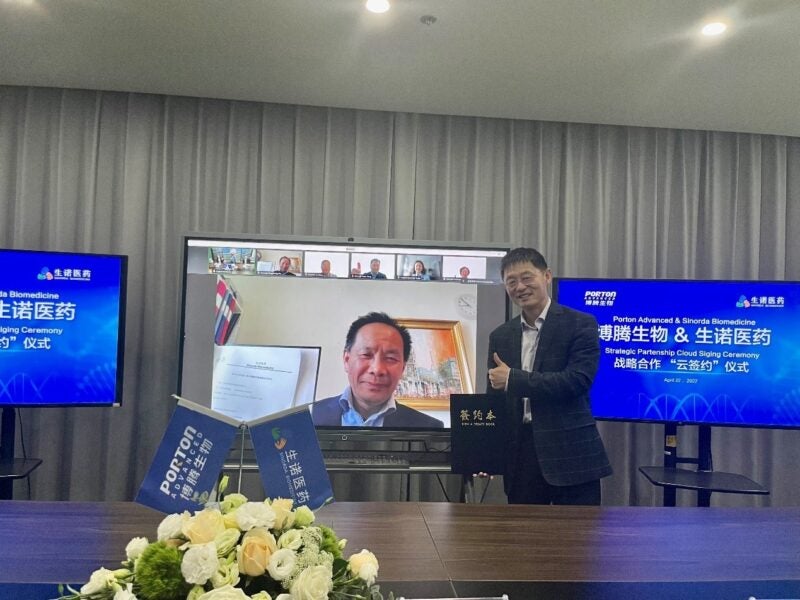

Suzhou Porton Advanced Solutions and Guizhou Sinorda Biomedicine have entered a long-term strategic collaboration for cell and gene therapy research and development (R&D) and platform development.
As per the deal, Porton will offer services to expedite the development, manufacturing and registration of breakthrough cell therapies that Sinorda is developing.
These therapies comprise a T-cell immunotherapy product for colorectal cancer, SND002 (Sentinel lymph node T cell) among others.
A collaborated project, SND002 (SLN-T) obtained approval to commence Phase II clinical trials in Europe.
The latest alliance will aid in combining the resources and expertise of both the companies and offers enhanced synergy to expedite the SLN-T programme’s clinical development and approval.
Furthermore, Porton will collaborate with Sinorda to back the R&D and production of cell and gene therapies.
Proton Advanced CEO Dr Yangzhou Wang said: “Sinorda Biomedicine has a proven track record in drug development in China, US and Europe.
“The company possesses great expertise in immunology and oncolytic viruses, as well as cutting-edge immune functional assays, technologies, and capabilities.
“I am excited to see how our end-to-end cell and gene therapy CDMO platforms and quality systems can complement these capabilities and enhance Sinorda’s pipeline.
Porton provides an end-to-end gene and cell therapy contract development and manufacturing company (CDMO) service platform.
It comprises cell therapy, gene therapy, oncolytic virus, plasmids, messenger ribonucleic acid (mRNA) therapy and bacterial therapy.
Sinorda, which has expertise in domestic and international new drug filing, works on the R&D of new drugs to treat digestive tract ailments, tumour immunotherapy and oncolytic virus therapy.
It also has numerous new drug programmes in the clinical stage of development.
Cell & Gene Therapy coverage on Pharmaceutical Technology is supported by Cytiva.
Editorial content is independently produced and follows the highest standards of journalistic integrity. Topic sponsors are not involved in the creation of editorial content.


